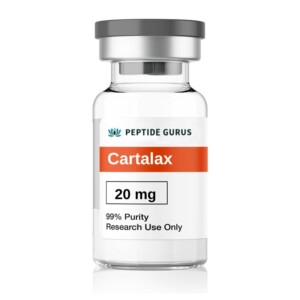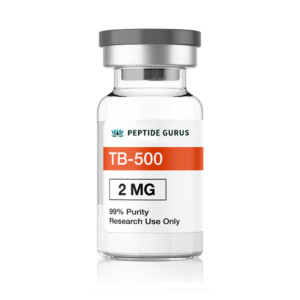Research Peptide Production Solutions
In the ever-evolving landscape of biopharmaceutical research and development, the pursuit of efficient and precise peptide production solutions has become paramount. Peptides, short chains of amino acids, play pivotal roles in numerous biological processes, making them invaluable tools for drug discovery, diagnostics, and therapeutic applications. This article delves into the realm of research peptide production solutions, exploring the latest advancements, challenges, and strategies that underpin their successful implementation.
Introduction
The demand for peptides has surged in recent years, fueled by breakthroughs in genomics, proteomics, and synthetic biology. Researchers worldwide are relentlessly exploring novel peptide production solutions to address the complexities of designing, synthesizing, and scaling up these molecules. Understanding the nuances of research peptide production is crucial for advancing the frontiers of biopharmaceutical science.

The Significance of Peptides in Biopharmaceuticals
Peptides occupy a unique niche in the biopharmaceutical industry due to their high specificity, low toxicity, and the ability to mimic natural processes. They are widely used as drug candidates, targeting specific receptors or enzymes to treat diseases ranging from cancer to autoimmune disorders. Moreover, peptides serve as essential probes in understanding biological pathways and developing novel diagnostic tests.
Advancements in Peptide Synthesis Technologies
One of the cornerstones of research peptide production is the continuous advancement in synthesis technologies. From traditional solid-phase peptide synthesis (SPPS) to more sophisticated methods like liquid-phase peptide synthesis (LPPS) and expressed protein ligation (EPL), researchers have access to a diverse toolbox for crafting complex peptide structures. These techniques offer varying degrees of scalability, flexibility, and purity, enabling the production of peptides tailored to specific research needs.
Custom Peptide Synthesis Services
Recognizing the unique requirements of each research project, custom peptide synthesis services have emerged as a vital resource for scientists. These services offer tailored solutions, from designing novel peptide sequences to optimizing synthesis protocols and ensuring high-quality product delivery. Collaborating with experienced peptide synthesis providers can significantly accelerate research timelines and reduce the risk of failed experiments.

Challenges in Peptide Production
Despite these advancements, peptide production remains a challenging endeavor. Factors such as solubility, aggregation, and post-translational modifications can significantly impact peptide stability and bioactivity. Furthermore, scaling up peptide synthesis from milligram to gram quantities often necessitates significant process optimization and validation. Overcoming these challenges requires a deep understanding of peptide chemistry and a commitment to continuous improvement.
Biopharmaceutical Applications of Peptides
The biopharmaceutical industry has leveraged the unique properties of peptides to develop innovative therapies. Hormone-like peptides, such as insulin and glucagon-like peptide-1 (GLP-1) analogs, are among the most successful examples. Additionally, peptide-based vaccines, immunotherapies, and targeted drug delivery systems are actively being researched and developed. These applications underscore the immense potential of peptides in addressing unmet medical needs.
The Role of Automation and AI in Peptide Production
Automation and artificial intelligence (AI) are transforming the landscape of peptide production. Automated synthesis platforms can streamline workflows, reduce errors, and improve reproducibility. AI algorithms, on the other hand, can analyze vast amounts of data to optimize synthesis conditions, predict peptide properties, and design novel peptide sequences with enhanced therapeutic potential.
Regulatory Considerations for Peptide-Based Products
Bringing peptide-based products to market involves navigating complex regulatory frameworks. Researchers and manufacturers must comply with stringent guidelines related to safety, efficacy, and quality control. Understanding and adhering to these regulations is crucial for ensuring the successful commercialization of peptide-based therapies.
Sustainability in Peptide Production
As the demand for peptides grows, so does the need for sustainable production practices. Researchers and manufacturers are increasingly focusing on eco-friendly approaches, such as using renewable solvents, reducing waste, and optimizing resource utilization. These efforts aim to minimize the environmental footprint of peptide production while maintaining high standards of quality and efficiency.
Collaborations and Partnerships in Peptide Research
Collaborations and partnerships between academia, industry, and regulatory bodies are fostering innovation in peptide research. These collaborations facilitate the sharing of knowledge, resources, and expertise, accelerating the pace of discovery and development.
Future Perspectives
Looking ahead, the future of research peptide production solutions is bright. Advances in technology, particularly in the fields of synthetic biology, automation, and AI, will continue to drive innovation. As we deepen our understanding of peptide chemistry and biology, new opportunities for therapeutic interventions will emerge. Moreover, the increasing emphasis on sustainability will ensure that peptide production.
PeptideGurus is a leading supplier of American-made research peptides, offering top-quality products at competitive prices. With a focus on excellence and customer service, they ensure a secure and convenient ordering process with global shipping.
CONTACT